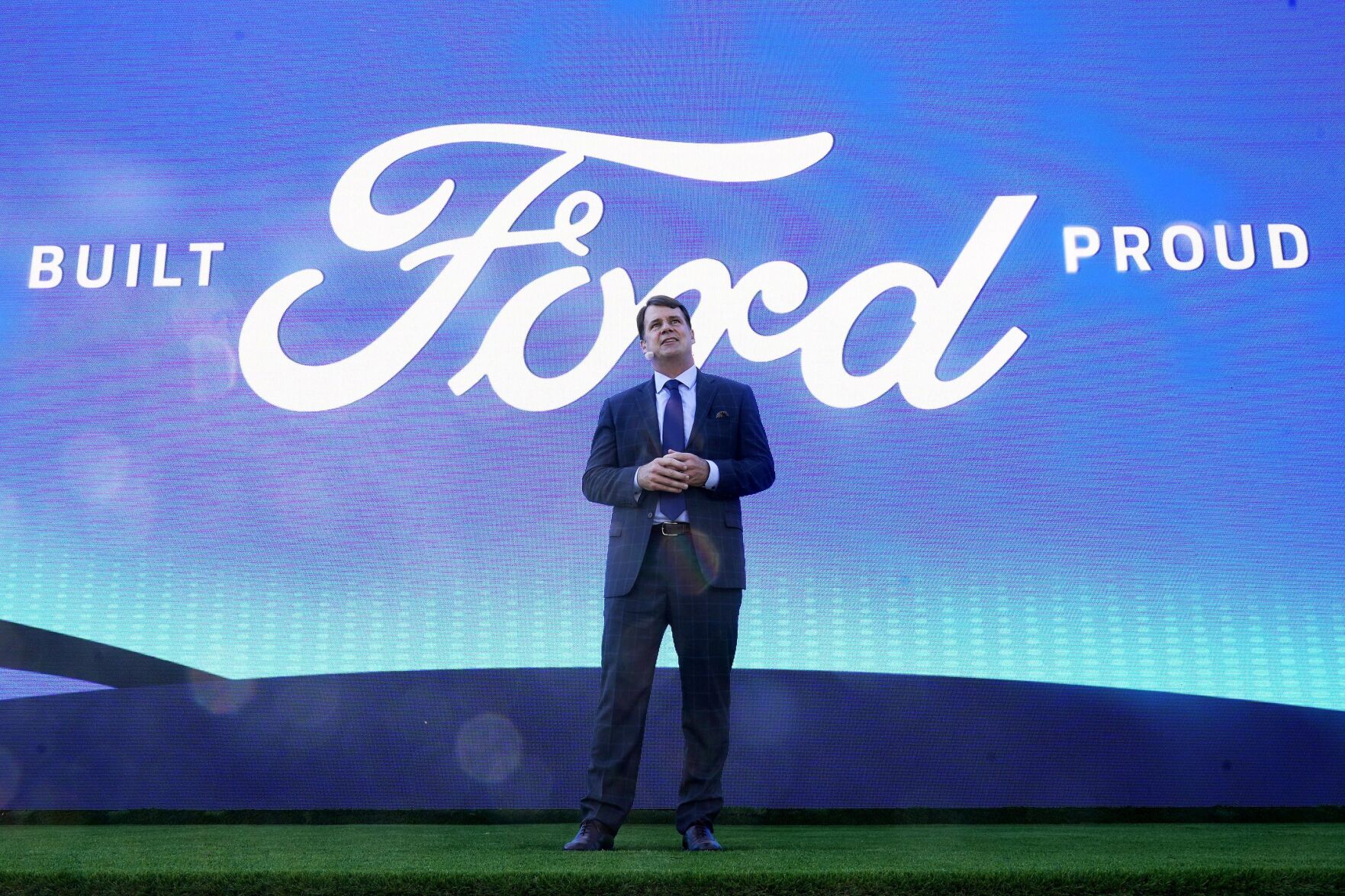DEARBORN, Mich. — Ford CEO Jim Farley says the company will stop competing in over-served market segments and instead will place big bets on connected vehicles and digital services.
The days of Ford being all things to all people are over, Farley said at the company’s capital markets day event today.
The company, he said, has been “stuck in a box,” with thin profit margins, weak growth and low stock valuation.
Ford, Farley said, will emphasize software and services as well as iconic vehicles such as pickup trucks, large SUVs, commercial vehicles and advanced second-generation electric vehicles. He said the company is eliminating waste to close a cost gap with the best in the industry with a “lean disciplined operating system” that reaches into all Ford factories.
For example, by the time Ford rolls out a new version of the F-150 pickup truck later this year, it will have cut 2,400 parts from the bill of materials for the truck from the existing model, Kumar Galhotra, president of Ford Blue, the company’s internal combustion unit.
Ford’s F-Series pickups are the top-selling vehicles in the U.S. and a huge profit center for the company.
Farley said by focusing on software, services and Ford’s strengths in products, the company won’t be as vulnerable to a downturn as in the past. He said the company has let complexity “overrun our business as we tried to be all things to all people.”
Farley says Ford will be competing differently, going for tailored ownership experiences rather than “jockeying for slivers of market share” with complex vehicles in over-served market segments. He said the company will go to non-negotiated prices, working with dealers.
Farley has long complained about Ford’s high retail and warranty costs, and Galhotra said the company is making changes to reduce those to help improve profit margins.
Rather than testing the new Super Duty pickup to a particular standard, the company tested it until parts and systems failed, he said. Now Ford is finding the eventual weak point and eliminating it, prolonging vehicle life, Galhotra said.
Ford also is focusing on reducing the number of parts in its vehicles, and on the performance and stability of parts supply companies, he said.
“We have some chronically inefficient tier one and tier two suppliers,” Galhotra said. Some have caused an unstable flow of parts, he said, adding that Ford has worked with 125 key suppliers to stabilize their operations. “If the present supplier is not on a path to a permanent solution, we’re resourcing the business,” he said.
A study by Plante Moran released today showed that Ford’s working relations with parts suppliers has declined dramatically since 2020.
Ford has said it will get to a 10% pretax profit margin in 2026. It reiterated 2023 full-year guidance of $9 billion to $11 billion in adjusted pretax profits.
Farley said the 10% profit margin is just a step along Ford’s journey, and the company has even greater ambitions.
Ford Motor Co. also said it cut deals with a number of companies to supply its rapidly growing electrical vehicle division, Ford Model e.
Ford will get more than 100,000 metric tons of lithium hydroxide from Albemarle, based in Charlotte, North Carolina. Compass Minerals International announced a multiyear deal to supply Ford with up to 40% of the battery-grade lithium carbonate coming from its project in Utah.
EnergySource Minerals will supply the carmaker with lithium hydroxide from a new site in Imperial Valley, California, and Nemaska Lithium, a Canadian miner, will supply Ford with 13,000 tons of lithium hydroxide annually for 11 years. per year over 11 years.
Because the materials are coming from the U.S. and Canada, it ensures that Ford’s electric vehicles will qualify for new federal tax credits, making them more competitive.
Ford has split itself into three business units, Ford Blue for gasoline-powered and hybrid vehicles, Ford Model e for electric vehicles and digital products, and Ford Pro, the company’s commercial vehicle business.
“I’m not here to tell you that we’re under valued,” Farley said today. “You make your own decision.”
Shares of Ford fell 1% early today.


